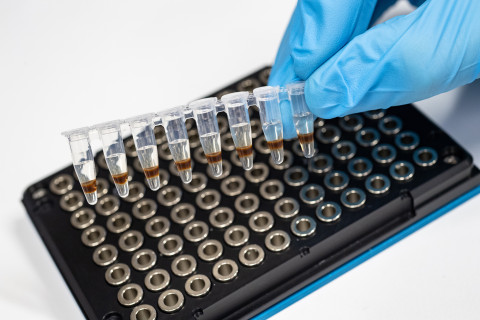The doctoral dissertation will be examined at the Faculty of Health Sciences. The public examination will be streamed online.
What is the topic of your doctoral research? Why is it important to study the topic?
Diet and dietary elements are crucial players in maintaining human health and are considered important risk factors for non-alcoholic fatty liver disease (NAFLD) development. My doctoral research focuses on identifying circulating small metabolites that are coming from dietary sources and play an important role in the onset and pathogenesis of NAFLD. I have investigated how these metabolites can directly regulate clinical and molecular characteristics associated with NAFLD and could be promising candidates for the management of NAFLD.
What are the key findings or observations of your doctoral research?
The results of this thesis shed light on the diverse possibilities of how nutrient-related metabolites could contribute to NAFLD pathogenesis and related clinical phenotypes. Specifically, the correlation of serum tryptophan with LDL biology, serum indolepropionic acid (IPA) with liver fibrosis, and liver content of saturated fat with glucose dysregulation highlight the intricate connections between diet, gut, and liver metabolism in humans.
How can the results of your doctoral research be utilised in practice?
The nutrient-related metabolites identified in the present thesis were found to be associated with the severity of NAFLD and these could be used as biomarkers for identifying patients in the early stages of NAFLD. Since the most important risk factor for NAFLD is diet and unhealthy lifestyle, the interactions of identified metabolites with liver biology not only expands the understanding of the underlying mechanism but also provides drug candidates for NAFLD treatment. This thesis further proposes that nutrient-related metabolites actively contribute to NAFLD progression and, therefore, could be modulated to create new dietary therapies to treat NAFLD.
What are the key research methods and materials used in your doctoral research?
The study population for this thesis work includes individuals from an ongoing Kuopio obesity surgery (KOBS) study. For the present thesis, clinical data collected either before or during the bariatric surgery (clinical measurements, liver histology, liver transcriptomics, liver fatty acid composition, and liver DNA methylation) was investigated to identify nutrient-related metabolites using non-targeted metabolite profiling. For one of the study aims, human hepatic stellate cells were used to validate the clinical findings.
The doctoral dissertation of Ratika Sehgal, Master of Pharmacy, entitled Nutrient-related metabolites in non-alcoholic fatty liver disease will be examined at the Faculty of Health Sciences. The Opponent in the public examination will be Dr. Cristina Menni of King’s College London, and the Custos will be Professor Jussi Pihlajamäki of the University of Eastern Finland. The public examination will be held in English.
For further information, please contact:
Ratika Sehgal, MPharm, ratika.sehgal (a) uef.fi, tel. +358 402583166
https://uefconnect.uef.fi/en/person/ratika.sehgal/
Twitter: @rats_n_research



